Mechanical tools are indispensable in any kind of industrial work. They make maintenance and repair light and safe. At Acorn Industrial Services Ltd, we have a wide range of mechanical tools that will meet the tough demands different industries face.
Be it bolts tightening, parts aligning, or caring about the equipment, our tools provide forceful accuracy for correct execution. Browse our collection today and see for yourself how the right tools can improve both work efficiency and safety.
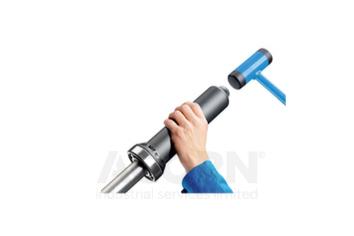
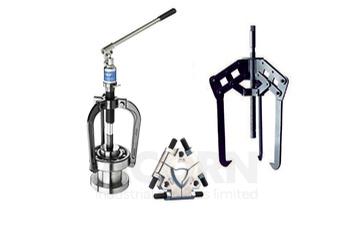
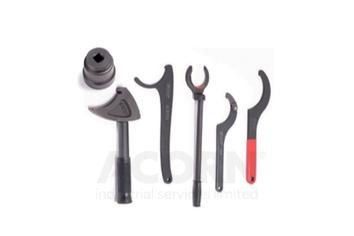
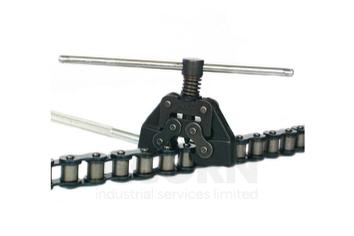
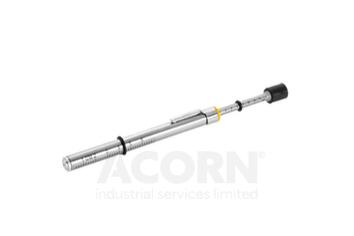
Mechanical tools are very important for keeping and fixing industrial equipment. They help ensure that things work well in different industries. These tools are needed for jobs like tightening bolts and keeping machines aligned, as they provide accuracy and dependability.
The importance of mechanical tools can be summarised under three basic headings:
Safety and Efficiency: The use of proper tools at work is an important factor in ensuring safety at the workplace and the efficiency of equipment. Good mechanical tools reduce the possibility of accidents and prevent damage to machines, which could lead to costly downtime and repairs.
Making things work better, and quicker: The right tools ease maintenance, thereby enabling technicians to do their jobs more quickly and efficiently. This means less lost time and more work done, very important in critical industrial settings where every second may count.
Knowing well the importance of mechanical tools, businesses that invest in good equipment raise work efficiency, safety, and overall productivity.
Mechanical tools are employed in many industries, and each has a special job in performing certain tasks. The following are some of the usual uses for mechanical tools:
Installation and Removal of Components: Installation and removal of mechanical components like bearings, gears, and bushings require special tools, the most common of which include fitting tools and bearing pullers. These tools ensure the proper positioning and alignment of the parts concerned with minimal damage.
Maintenance and Repair: Spanners, sockets, and wrenches are often used to tighten or loosen bolts and nuts when doing regular maintenance and repairs. These tools are essential for keeping machines in good condition and making sure they work smoothly.
Alignment and Calibration: Equipment such as belt tension gauges and alignment tools ensure that belts and chains are properly aligned and at the correct tension. Proper alignment and tension will enable machinery to operate efficiently without damage, using less energy.
Safety Inspections: Mechanical tools are used in safety inspections to look for wear and tear, make sure that machines are properly maintained, and check that all parts are working as they should. This is important for preventing accidents and following safety rules.
Specialised Industrial Applications: In industries like cars, planes, and making things, special mechanical tools are used for jobs like measuring torque, fitting parts accurately, and keeping assembly lines running. Each tool is made to meet specific needs, making sure they work accurately and efficiently in their jobs.
By knowing the different uses of mechanical tools, businesses can make sure their teams are ready to manage various maintenance and repair tasks, improving overall work efficiency.
Choosing appropriate mechanical tools for the job at hand will go a long way in guaranteeing efficiency, safety, and precision. The following considerations can help guide your selection process:
Know what you need: First, you have to find out just what the job requires. Make a mental note about the machinery you will be operating, the pieces you will need to handle, and what the job is to be performing, repairing, or maintaining something. This will help you determine what tools you will require for the job.
Think Quality and Durability: Investing in good quality and solid tools is greatly important for the assurance of sustained performance and good reliability. Select equipment made from quality material capable of withstanding extensive use and harsh conditions. Brands offering warranties and certifications tend to prove their quality.
Safety Matters: Safety is a priority when selecting mechanical tools; therefore, choose those that have safety features in place, such as non-slip grips, insulated handles, or designs that make their use easier and less injurious. Besides, verify if the tools meet the safety rules and standards set by the industry.
Compatibility and Flexibility: One needs to check compatibility with the equipment a person already has and flexibility for multi-purpose usage. Multi-use tools will save some money and lessen the number of tools one must carry.
Ease of Use and Maintenance: Tools designed for ease of use and maintenance, on the other hand, greatly increase efficiency. Find tools whose friendly usage designs boast not much maintenance. Indeed, well-maintained tools last longer and also perform well, reducing costs in terms of time and money.
Seek Expert Advice: If you are not sure which ones to select, consult experts or even suppliers who will be able to advise you based on your needs. They can also assist in choosing the right tool for your job and see that you have what you will require for doing jobs effectively and safely.
By choosing the right mechanical tools for the job, you could increase productivity amongst your team, which can also keep them safe and extend the life of their equipment.
At ACORN Industrial Services, our offerings extend beyond just heating tools. We are committed to providing other maintenance equipment products to meet your industrial needs:
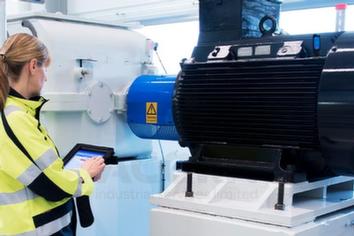


Mechanical tools are devices that help install, maintain, and repair machines and mechanical systems. They are made to do tasks like tightening bolts, pulling bearings, aligning parts, and keeping the right tension in chains and belts.
Mechanical tools are made for jobs with machines and mechanical systems. They often have to be very precise and strong. Hand tools, on the other hand, are more general-purpose tools used for many manual tasks. These tasks are not just for mechanical work and include things like hammers, pliers, and screwdrivers.
The range of mechanical tools includes fitting tools, pullers, spanners and sockets, chain breakers and belt tensioners.
These tools help to reduce the risk of component damage when performing maintenance on your machinery. This helps to prevent premature component failure, keeping costs down and optimising uptime.
Using mechanical tools during maintenance also reduces the amount of manual effort required. This means that maintenance is quicker to perform, and also reduces the risk of worker injury during maintenance.